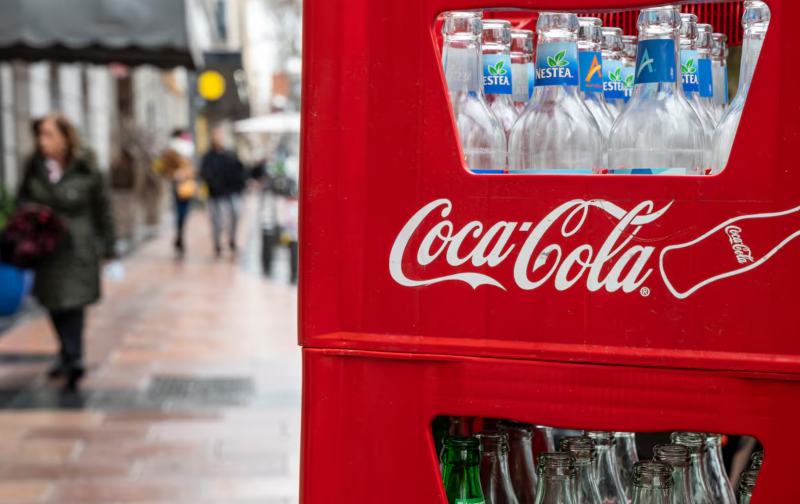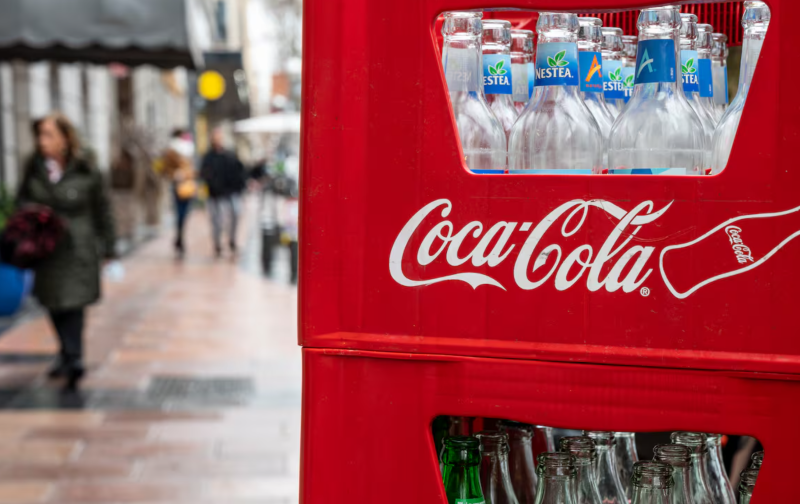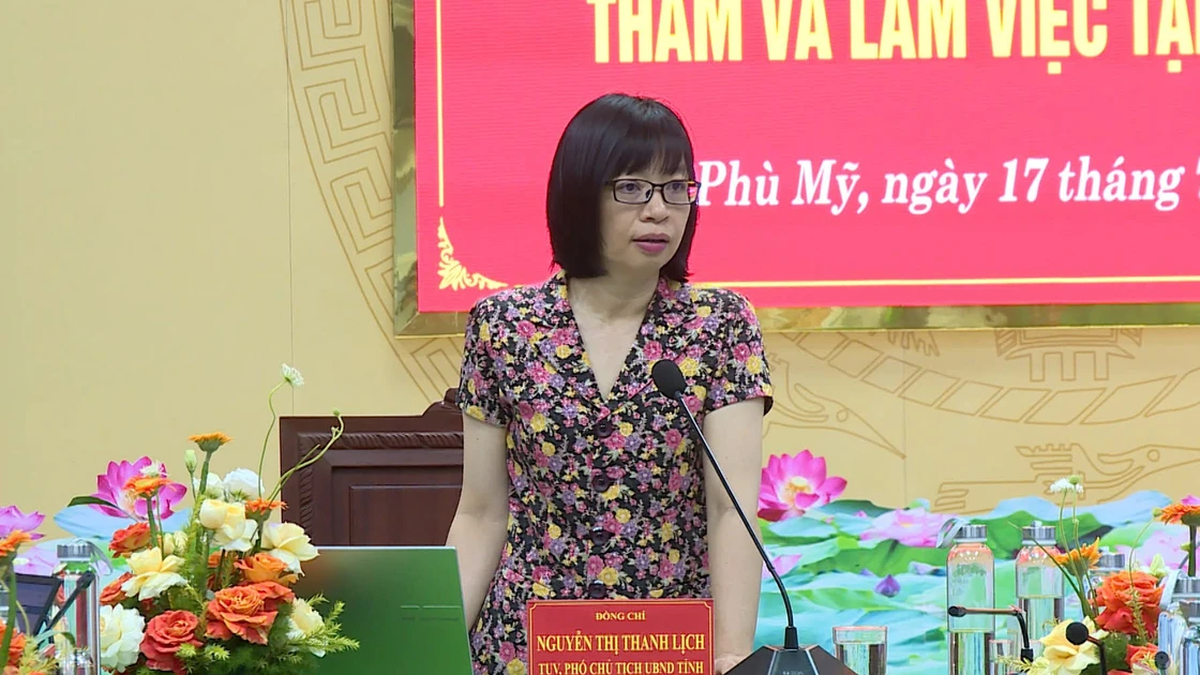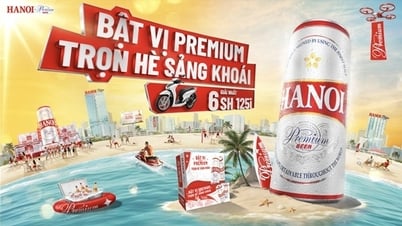After breaking off a deal to sell Nestea, Coca-Cola wants to promote its own brand, Fuze Tea, in a move that could spark a mini-trade war.

Nestea bottle inside the carton with Coca-Cola logo. Photo: Getty Images
If you drink Nestea and live in Spain, you can breathe a sigh of relief: this famous beverage is not going to disappear from the Spanish market. Rumors have been circulating since a few months ago when it became known that the Swiss multinational Nestlé, owner of the famous tea brand, would cut ties with Coca-Cola, which has been distributing the brand in Spain since 1993. Now Coca-Cola wants to promote its own brand, which it calls Fuze Tea.
In fact, Fuze Tea can already be found in bars, restaurants, and on supermarket shelves. But the divorce has sparked a strange legal battle, because while Nestea is owned by Nestlé, the drink’s formula belongs to Coca-Cola. Conflict seems inevitable.
By 2025, the two companies will be rivals. On October 8, Nestlé smoothed things over by saying that it would continue to sell iced tea under the Nestea name and that consumers “will be able to continue to choose their favorite iced tea in their favorite flavors.” But a week later, Coca-Cola responded by clarifying that the company’s new iced tea drink, Fuze Tea, uses “a long-standing tea drink recipe.” The recipe “is and will remain the exclusive property of The Coca-Cola Company,” the company said.
Market analysts believe that, while the situation may be confusing for consumers, the coexistence of two brands does not necessarily lead to a courtroom, even though this scenario is delicate.
“Even if the separation is not amicable , we still have two brands that can coexist in the market, given their differences,” said Carmen González Candela, director of strategy and legal advisory services at PONS IP.
Flavor dispute
One potential area of conflict is flavor. The problem is that there is no way to register the flavor of a drink, just as there is no way to register the smell. That is why companies do not protect flavors, but rather the recipes that create them.
One question is, could Nestlé sell Nestea if their formula was owned by Coca-Cola? The answer is yes.
“Theoretically, if Nestlé could develop a formula that was identical to Nestea's completely independently, they could market that formula,” explains Eric Maciá Lang, head of trade secrets at PONS IP.
Trade secrets do not grant exclusive rights to use them. In other words, a company — in this case, Coca-Cola — cannot claim exclusive rights to a flavor.
Laura Montoya, partner in charge of the legal and litigation department of ABG Intellectual Property, pointed out that, in this regard, “if a third party copies the recipe”, i.e. obtains a similar or even identical taste to Nestea, “the secret owner cannot prevent it”.
Advertising front
The second front in the battle between Nestlé and Coca-Cola could be advertising. “There will most likely be some advertising battles,” said Mr. Montoya.
In Spain, the law does not prohibit companies from explicitly mentioning competitors in their advertising. Montoya points out that this is called “comparative advertising,” which is allowed in Spain. But there are certain lines that cannot be crossed. For example, Nestlé and Coca-Cola must be clear that “comparisons between their products must be objective, not misleading, and must not disparage competitors” or “distort reality.” Currently, Coca-Cola only claims that Fuze Tea, its iced tea drink, is the “original flavor.”
Unfair competition
A third potential area of conflict between the two companies is on the issue of unfair competition. For Inmaculada de la Haza, a partner at Balder, Nestea and Fuze Tea “are compatible trademarks”, because although both are tea-based drinks, there are “clear differences in name and pronunciation… It is also worth noting that Fuze is not a new trademark, it was created in 2000 in the US, acquired by Coca-Cola in 2007 and is present in 90 countries worldwide ”. However, she admits that the bottling process of the products is very similar. This is not trivial, as it could confuse consumers, which is exactly what the law wants to avoid.
Candela Sotés, director of competition at Bird & Bird, acknowledged that future competition between Nestea and Fuze Tea could result in “drastic measures” to attract customers. And in the heat of a trade war, these could “confuse consumers who mistake one brand for the other.”
In such a scenario, the use of “exclusivity or non-compete clauses” could be scrutinized, said Sotés, as there is a risk that the company with greater market power could block access to the other company’s distribution network, especially in hotels, restaurants and canteens.
The main idea is that Nestlé and Coca-Cola should not get in each other's way: "They will have to prevent such confusion from being deliberately caused by their advertising campaigns or commercial strategies."
Apparently the tea war is being served in a very cold glass!
According to Baotintuc.vn
Source: http://www.baohoabinh.com.vn/12/195691/Nestle-va-Coca-Cola-mot-cuoc-ly-hon-cang-thang.htm






























































![[Maritime News] More than 80% of global container shipping capacity is in the hands of MSC and major shipping alliances](https://vphoto.vietnam.vn/thumb/402x226/vietnam/resource/IMAGE/2025/7/16/6b4d586c984b4cbf8c5680352b9eaeb0)






































Comment (0)